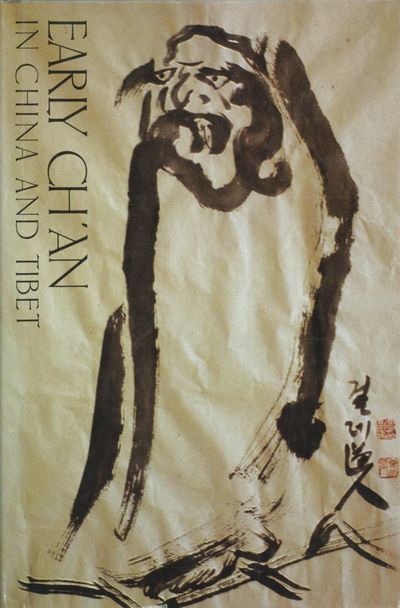Foreword
Preface
Contributors
Abbreviations
I. CHINA
- a. State of Scholarship
- New Japanese Studies in Early Ch'an History1
- Philip Yampolsky
- b. Formative Period
- The Li-tai fa-pao chi and the Ch'an Doctrine of Sudden Awakening13
- Yanagida Seizan
- Seng-ch'ou's Method of Dhyāna51
- Jan Yiin-hua
- T'an-ch'ien and the Early Ch'an Tradition: Translation and Analysis of the Essay "Wangshih-fei-Iun"65
- Whalen W. Lai
- The Teachings of the Fourth Ch'an Patriarch Tao-hsin (580-651)89
- David W. Chappell
- The Concept of Ii nien ("being free from thinking") in the Northern Line of Ch'an Buddhism131
- Robert B. Zeuschner
- Early Hua-yen, Meditation, and Early Ch'an: Some Preliminary
Considerations149- Robert M. Gimello
- The Early Ch'an Monastic Rule: Ch'ing-kuei and the Shaping of Ch'an
Community Life165- Martin Collcutt
- c. The Developing Tradition
- The "Recorded Sayings" Texts of Chinese Ch'an Buddhism185
- Yanagida Seizan
- Lin-chi on "Language-Dependence," An Interpretive Analysis207
- Ronald L. Burr
- Sinitic Mandalas: The Wu-wei-t'u of Ts'aoshan229
- Whalen W. Lai
- d. Interaction
- The Ambiguity of the Buddha-nature Concept in India and China259
- Andrew Rawlinson
- The Problem of Desire and Emotions in Taoism and Ch'an281
- John Visvader and William C. Doub
- The Pure and the Impure: The Mencian Problematik in Chinese Buddhism299
- Whalen W. Lai
II. TIBET
- a. State of Scholarship
- The Study of Tibetan Ch'an Manuscripts Recovered from Tun-huang: A Review
of the Field and its Prospects327- Daishun Ueyama
- b. Tibetan Meditation Systems and Ch 'an
- 'Meditation' Trends in Early Tibet351
- Herbert V. Guenther
- 'The Great Perfection' in the Tradition of the Bonpos367
- Per Kvaerne
- Indian Materials on the Doctrine of Sudden Enlightenment393
- Luis O. Gomez
Index

